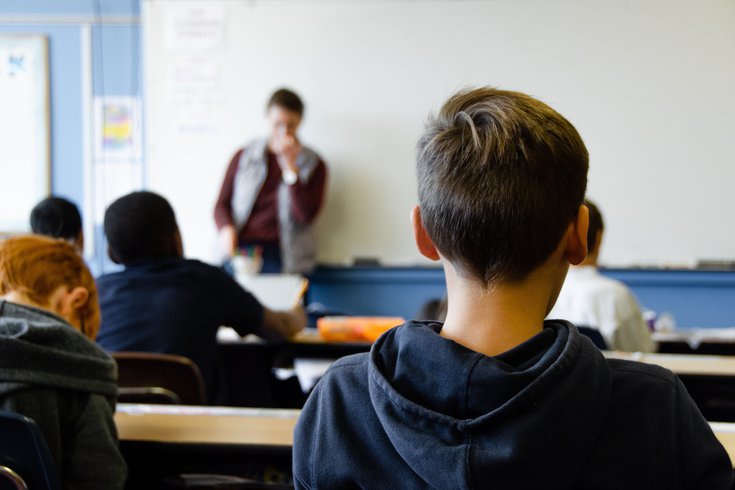
April 06, 2022
 Taylor Hilcox/Unsplash
Taylor Hilcox/Unsplash
A report on Safe2Say, a violence prevention tipline established by the Attorney General's Office, found that the majority of comments are about bullying, mental health, suicide, and self harm.
A report on Pennsylvania's student violence prevention tip line found that the majority of comments focused on mental health, bullying, suicide and self harm, Attorney General Josh Shapiro said on Wednesday.
Safe2Say was established by the Attorney General's Office in 2019 to mitigate violence among students and reduce school shootings. The program allows everyone from students, teachers and administrators to submit anonymous tips. Since launching, it has received 80,352 comments from schools around the state.
Of the comments received, 72.9% were related to mental health, 32% focused on bullying and 30% were about suicidal thoughts. Others included self harm or cutting at 20%, depression and anxiety at 12% and anger issues at 2%.
The report also found a "notable increase" in comments that were flagged as "life safety" matters, meaning that the immediate safety and security of a child may be at risk. The rate of these comments increased by 15.7% during the 2020-2021 school year.
"This is unique data, driven solely by students, and it is supported by extensive research that shows there is a mental health crisis affecting Pennsylvania children and teens," said Shapiro. "As a Commonwealth, we need to do more to support students, as well as the parents who are trying to help guide their kids through these challenges. Schools and teachers can't do it alone — they need extra support from professionals who are trained for this work."
The report concluded with a recommendation for an increase in the amount of mental health counselors present in Pennsylvania schools. Research has found that having a school counselor reduces the frequency of disciplinary action while improving attendance and academic performance.
The National Association of School Psychologists recommends one school psychologist per every 500 students in Pennsylvania, but the report notes there is currently only one for every 1,078 students.
In March, Shapiro and more than eight state attorneys general launched a multi-state investigation into the impact of the viral short-form video platform TikTok on youth mental health. It focused particularly on the apps user-based interface and marketing tactics aimed at keeping young people engaged for long periods of time.
He opened a similar investigation in November on the picture sharing platform Instagram, after internal research by the app's creators found it was associated with an increased risk of physical and mental health harm in young people.
Extensive research has gone into what Shapiro and others have called a "crisis" of mental health among young people since the initial onset of the COVID-19 pandemic in 2020. In February, Dr. Tami Benton, psychiatrist-in-chief at Children's Hospital of Philadelphia, went to Capitol Hill to speak with lawmakers about mental health challenges facing children and teens.
The pandemic has had a particularly significant impact on children and teens, leading the American Society of Pediatrics to declare a national emergency alongside several other health organizations.
A study conducted by the Centers for Disease Control and Prevention found that teenage girls accounted for the largest influx of emergency department visits for mental health conditions in 2020, 2021 and January 2022 compared to 2019. The bulk of these conditions included eating disorders, tic disorders, depression, anxiety, trauma and obsessive-compulsive disorder.
Researchers noted in the study that the prevalence of social media among adolescents has had an effect, although it's difficult to pinpoint one singular reason why teenage girls are developing disordered eating symptoms.
Although the COVID-19 pandemic certainly exacerbated mental health challenges among children and adolescents, research from the Department of Health and Human Services found an increase in diagnosis of depression and anxiety among children and teens over a five-year period.